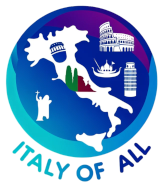The province of Terni, located in the Umbria region of central Italy, is distinguished by its rich historical heritage, industrial significance, and stunning natural landscapes, including waterfalls and lakes. Known as the “steel city” of Italy due to its industrial history, Terni also offers a range of cultural and natural attractions that highlight its diverse character.
Geographically, Terni is situated in the southern part of Umbria, featuring a landscape that includes part of the Apennine Mountains and the flat, fertile plains of the Tiber River basin. The province is renowned for the Marmore Falls, one of the tallest man-made waterfalls in the world, created by the ancient Romans. The surrounding area is characterized by lush vegetation and significant water resources, making it popular for both tourism and agriculture.
Historically, Terni has ancient origins, dating back to pre-Roman times. It became a significant industrial center during the 19th and 20th centuries, particularly known for its steel production and hydroelectric power, which fueled much of its growth. Despite the heavy bombing during World War II that destroyed many historical sites, Terni has managed to preserve several important landmarks, including the Roman amphitheater and the Basilica of St. Valentine, the patron saint of lovers.
Culturally, Terni embraces its heritage through various festivals and events, most notably the Feast of Saint Valentine, which attracts visitors interested in the romantic traditions associated with the city. Additionally, Terni hosts film, music, and art festivals that contribute to its vibrant cultural life, promoting both local talent and international collaborations.
Cuisine in Terni is typical of the Umbrian region, with a focus on rustic, hearty dishes that utilize local ingredients such as truffles, lentils, and game. Typical dishes include “strangozzi” (a type of pasta), served with black truffles or a tomato-based sauce, and “palomba alla ghiotta,” a festive dish made with wild pigeon. The region is also known for its olive oil and wines, which are celebrated in local gastronomy.
Economically, Terni has traditionally been one of the main industrial hubs in Umbria, with its economy heavily reliant on steel production and chemical processing. However, in recent years, there has been a shift towards diversifying its economic base, including the development of services, technology, and tourism. Efforts to promote sustainable tourism, particularly eco-tourism around its natural parks and lakes, are helping to redefine Terni’s economic landscape.
Despite challenges such as the transition from traditional industries to new economic sectors, Terni is focused on leveraging its rich cultural heritage and natural beauty to enhance its appeal as a destination and improve the quality of life for its residents.
Overall, the province of Terni offers a unique blend of industrial heritage, natural beauty, and historical depth. Its ongoing efforts to preserve its unique identity while adapting to changing economic circumstances ensure its continued importance in Italy’s cultural and economic landscape.
Comuni in Terni Province:
- Alviano
- Attigliano
- Allerona
- Avigliano Umbro
- Amelia
- Acquasparta
- Arrone
- Baschi
- Castel Giorgio
- Castel Viscardo
- Calvi dell’Umbria
- Fabro
- Ferentillo
- Ficulle
- Giove
- Lugnano in Teverina
- ** Guardea
- Montefranco
- Monteleone d’Orvieto
- Narni
- Penna in Teverina
- Parrano
- Orvieto
- Montecastrilli
- Montegabbione
- Otricoli
- Polino
- Porano
- San Venanzo
- San Gemini
- Stroncone
- Terni
- Villette
